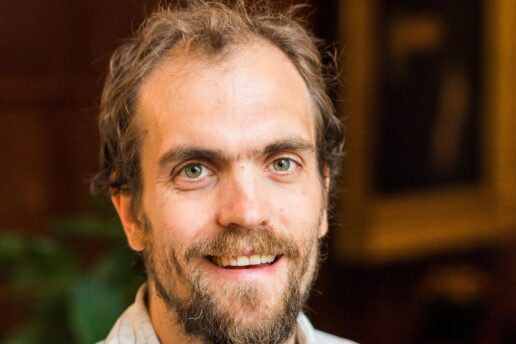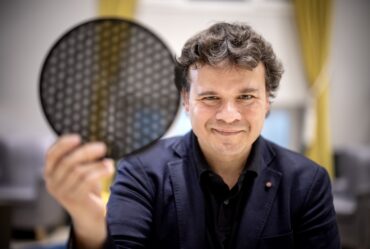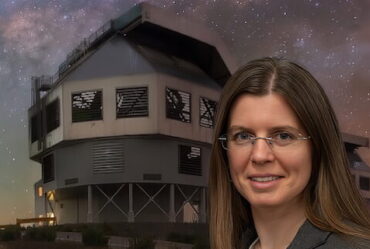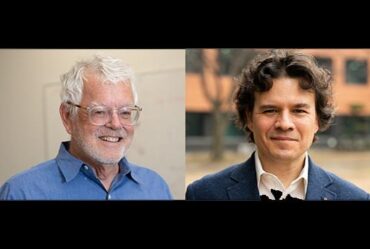
Professor Phil Harris wins 2023 Digital Technology Award
Nominated by students for his use of Jupyter notebooks and open public data in 8.316-Data Science in Physics
MIT’s Teaching with Digital Technology Awards are student-nominated and student-judged awards for faculty and instructors who have effectively used digital technology to improve teaching and learning at MIT. Co-sponsored by Open Learning and the Office of the Vice Chancellor, the goal is to recognize our educators for their innovations and to give the MIT community the opportunity to learn from their practices.
This year, students submitted 167 nominations. “Students wrote nominations for faculty and instructors who used technology–ranging from data visualization, digital whiteboards, and Zoom, to printed circuit boards, interactive notebooks and live demos,” said Senior Associate Dean Chris Capozzola, “all in ways that engaged students and aided their learning.”
This year’s 7 winners represent 4 schools, 6 departments, and 7 courses. At an award ceremony on May 30, Capozzola recognized the lasting impact each educator had, sharing the positive feedback from their respective student nominations.
The winners of the 2023 Teaching with Digital Technology Awards are:
Philip Harris, Assistant Professor, Physics, 8.316
Students offered high praise to Philip Harris for his use of interactive notebooks to help students understand computational techniques as applied to physics data analysis. Using Jupyter notebooks and open public data, Harris demonstrates for students how to analyze data using code and how to reproduce and learn from Nobel-prize discoveries.
Andreas Karatsolis, Associate Director of Writing, Rhetoric and Professional Communication, Comparative Media Studies/Writing, 21W.015
Andreas Karatsolis encouraged the use of data visualization to help students better understand rhetoric and data analysis, in addition to building up their confidence as writers. A student said, “I have never been good at writing and the different rhetorical and visual skills that I learned in this class massively improved my confidence in my writing skills!”
Christine Ortiz, Morris Cohen Professor, Materials Science and Engineering, 3.088
Ellan Spero, Instructor, Materials Science and Engineering, 3.088
Christine Ortiz and Ellan Spero used technology in the classroom in a seamless and engaging way. “The attention from projected slides to small groups discussions and the use of white boards shift fairly seamlessly. It makes the content really engaging for me to have it presented and then digested through these different mediums of technology along with dynamic group discussions,” a student shared.
Russell Tedrake, Toyota Professor, Electrical Engineering & Computer Science, 6.8210 / 6.4210
Students expressed deep appreciation for Russell Tedrake’s use of interactive graphics and code to help solidify their understanding of course concepts and applications. A student said, “Seeing these demos right after his teaching of theory really helped us make the ideas he taught more concrete, and bring on to surface some of the intricate details of some of these algorithms that one would otherwise not get just by looking at the mathematical theory.”
Joel Voldman, Faculty Head (EE) & Clarence J. LeBel Professor, Electrical Engineering & Computer Science, 6.9000
Students commended Joel Voldman for integrating design and assembly of printed circuit boards into his Engineering for Impact course. A student described printed circuit boards as a “very difficult technology to incorporate pedagogically due to technical and logistical challenges.”
Danielle Wood, Assistant Professor, Media Arts and Sciences / Aeronautics and Astronautics, MAS.858
Danielle Wood taught in hybrid format, a course structure students described as more inclusive and equitable for students with different backgrounds and responsibilities. “Professors like Dr. Wood make me feel like I belong at MIT and don’t need to pick pursuing my PhD at MIT or my personal responsibilities and has really influenced my feels about staying in academia in general,” shared a student.


